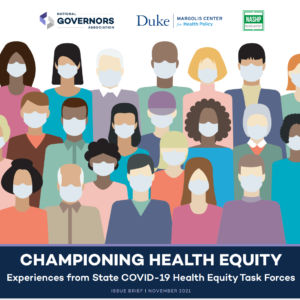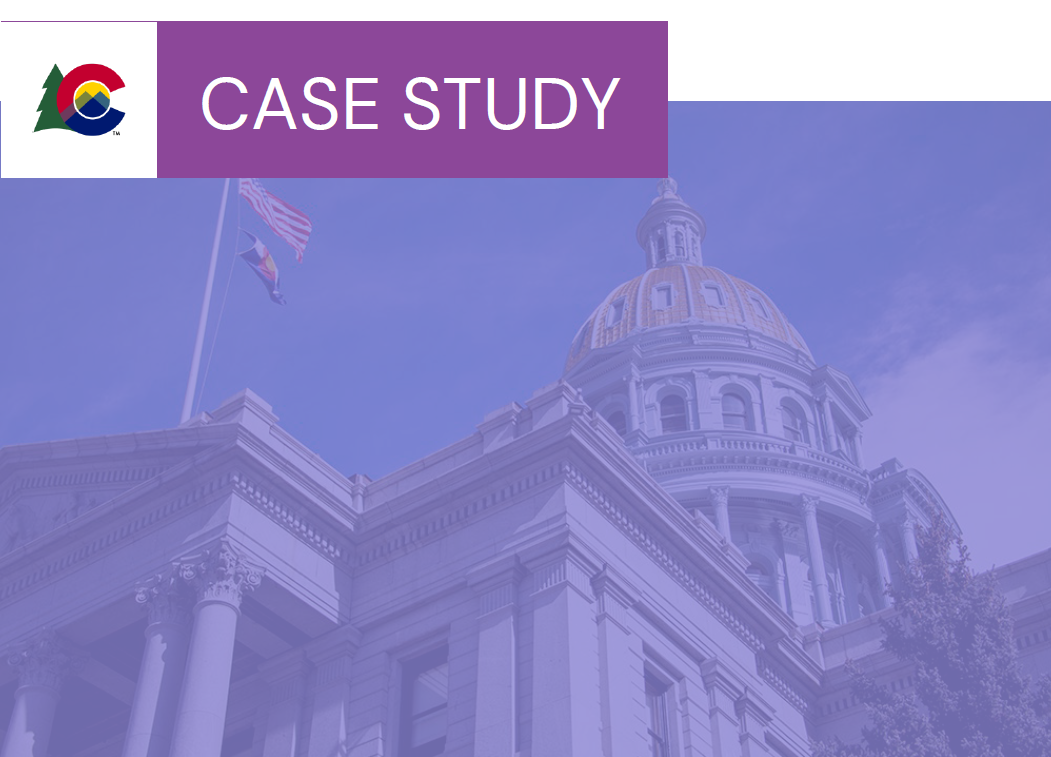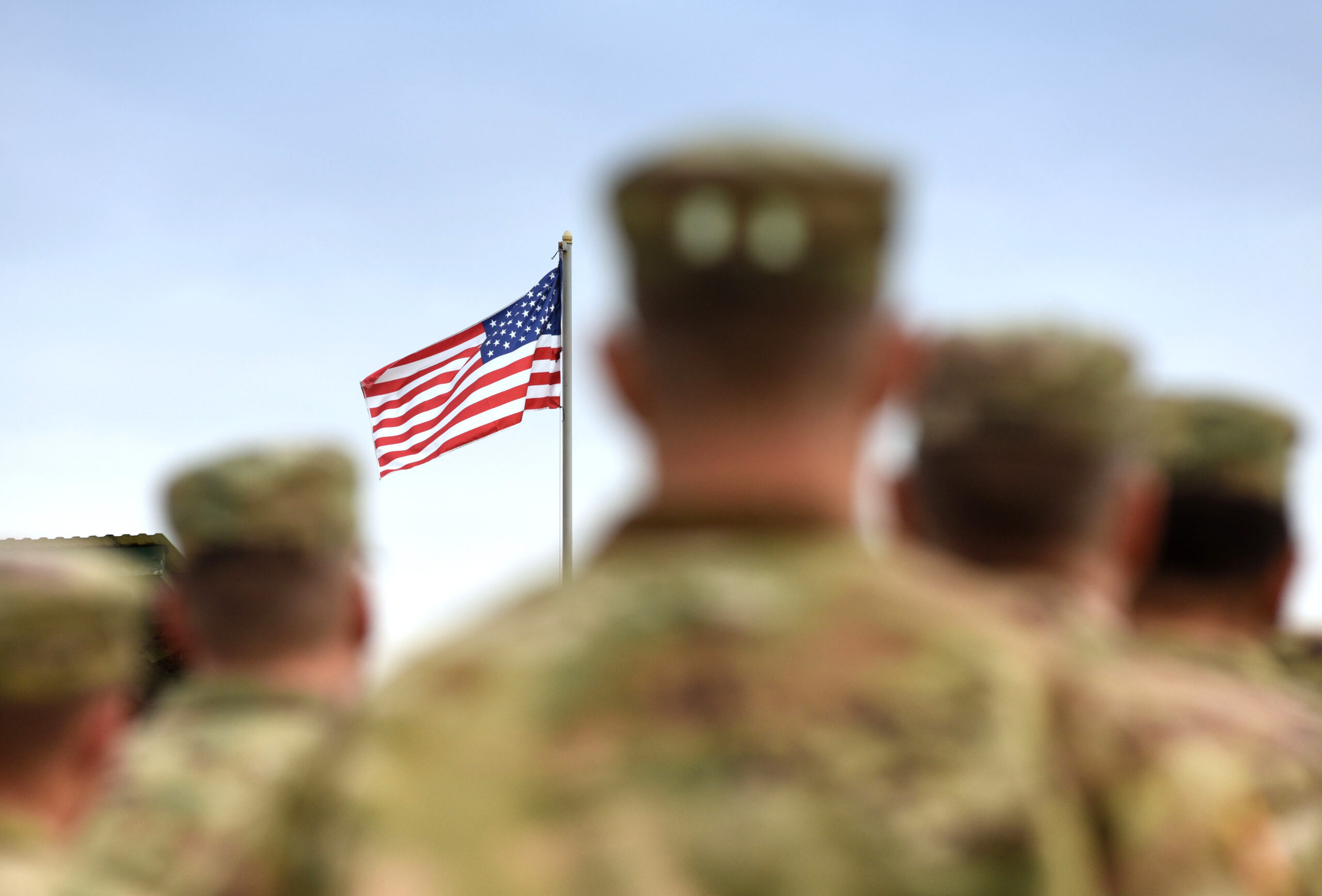This brief synthesizes key accomplishments and lessons learned based on interviews with 10 state COVID-19 health equity task forces.
Introduction
The COVID-19 pandemic has magnified social, economic, and health inequities among historically marginalized populations including Black, Latinx, American Indian, and Asian American subpopulations. Recent data show that Black and Latinx life expectancy declined by three years compared to 1.5 years for the total population in the United States as a result of the pandemic. These data reflect higher risk of COVID-19 exposure, mortality, and morbidity. In addition to disparities in disease burden, historically marginalized populations have experienced systemic barriers to accessing COVID-19 services and resources, leading to rate disparities for testing, vaccination and monoclonal antibody treatment. Although some disparities have narrowed, vaccination rates among Black and Latinx populations remain lower than non- Hispanic white populations, and disproportionately low relative to the proportion of cases and deaths. In response to COVID-19 health disparities, some states have established and invested in health equity task forces or workgroups. These task forces are designed to implement strategies to reduce the effects of structural racism and other structural inequities that create the systems, policies and practices that have led to COVID-19 disparities.
The National Governors Association, Duke-Margolis Center for Health Policy and the National Academy for State Health Policy convened state health equity leaders through the COVID-19 Health Equity Learning Network. The network serves as a platform for sharing best and promising practices for improving health equity in the context of the COVID-19 pandemic. This brief synthesizes key accomplishments and lessons learned based on interviews with 10 state COVID-19 health equity task forces represented in the network. We interviewed state officials representing the following states: Delaware, Illinois, Louisiana, Michigan, New Mexico, North Carolina, Pennsylvania, Rhode Island, Virginia, and Wisconsin. In addition, we highlight how the network informed or supported efforts led by these task forces. Lastly, the task forces reflected on focus areas to inform priority-setting for future initiatives to address equity and sustain efforts during and following the COVID-19 pandemic.
Key Takeaways
- Health equity task forces from 10 states have operationalized and institutionalized health equity in COVID-19 response efforts by: engaging community and cross-sector partners; strengthening partnerships and data infrastructure; and intentionally focusing on historically marginalized populations.
- Participating in the COVID-19 Health Equity Learning Network provided three key benefits: building relationships to develop a community of practice; sharing solutions to inform evidence-based strategies; and raising attention and spotlighting health equity within and across states.
- State leaders identified the following areas for future work and priority setting: employ sustainable strategies to maintain the focus on health equity; transition from public health emergency to broader health system response; and operationalize advisory role capacity.
Authors
This publication was developed by Andrea Thoumi and Kamaria Kaalund at the Duke-Margolis Center for Health Policy, in partnership with Elaine Chhean and Hemi Tewarson at the National Academy for State Health Policy, and Shelby Hockenberry and Sweta Haldar at the National Governors Association Center for Best Practices.
Acknowledgements
The authors thank their colleagues for their work on and contributions to the COVID-19 Health Equity Learning Network including Yolande Pokam Tchuisseu, Michelle DelFavero, and Mark McClellan at Duke-Margolis, and Ryan Martin and Lauren Block (formerly) at NGA. We also thank state officials who granted informational interviews, reviewed drafts and provided content for this publication, including state officials in Delaware, Illinois, Louisiana, Michigan, New Mexico, North Carolina, Pennsylvania, Rhode Island, Virginia and Wisconsin. We also thank other state health officials for their participation in the COVID-19 Health Equity Learning Network. Lastly, we thank the Robert Wood Johnson Foundation for their generous support for work on COVID-19 and equity, including this publication. The contents of this publication are solely the responsibility of the authors and do not necessarily represent the official views of the Robert Wood Johnson Foundation.
Recommended Citation Format
Thoumi A, Kaalund K, Chhean E, Hockenberry S, Haldar S, Tewarson H (2021, November). Championing Health Equity: Experiences from State COVID-19 Health Equity Task Forces. Washington DC: National Academy of State Health Policy, Duke-Margolis Center for Health Policy, National Governors Association Center for Best Practices














